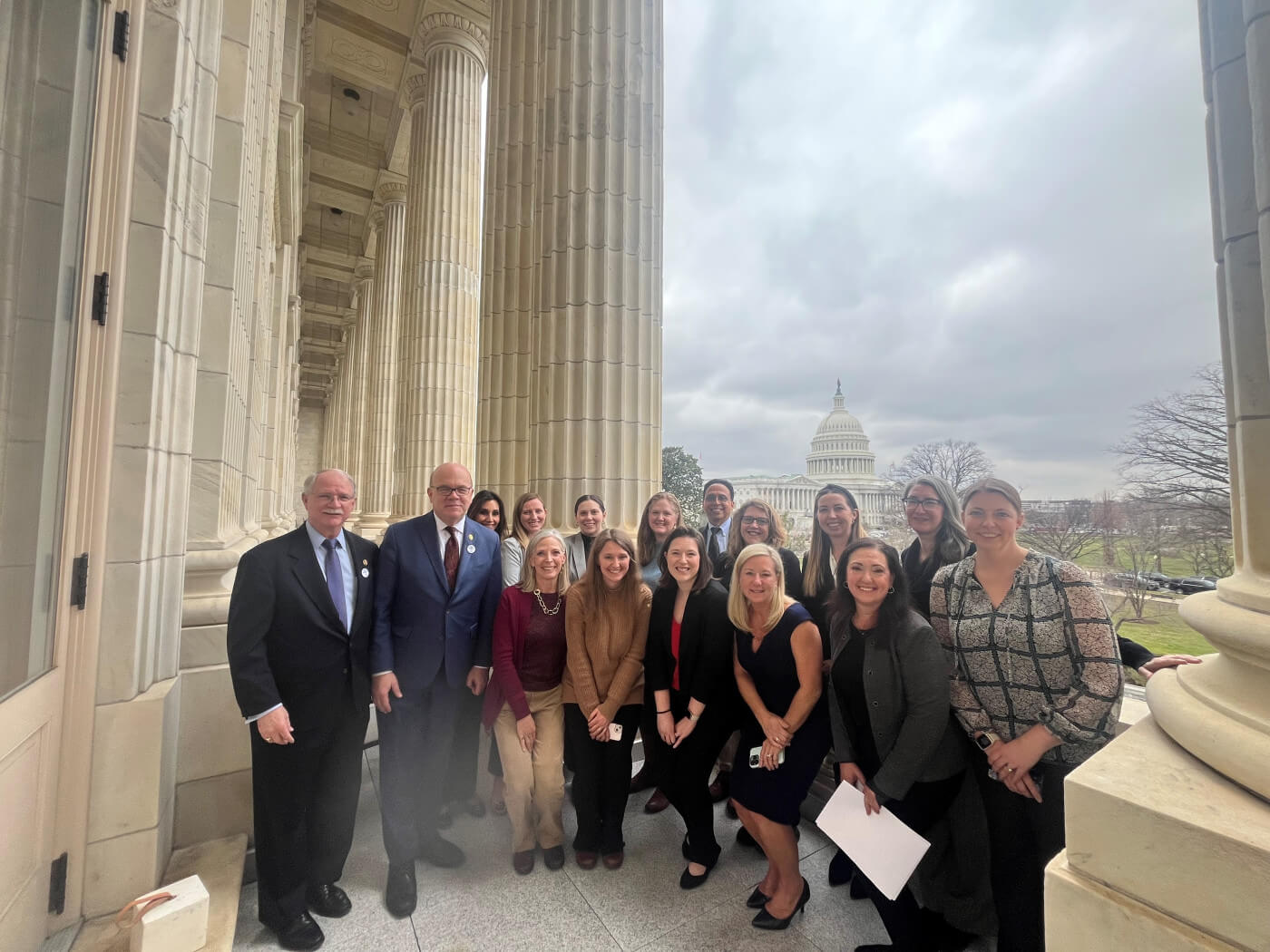Medical food is the life-sustaining therapy for thousands of people living with an inherited metabolic condition (1). Early detection via newborn screening is the first critical step in diagnosis and intervention. Once diagnosed, a regimen of medical formula, low-protein foods, amino acids, and vitamins is initiated to avoid neurological impairment, organ system failure, and even death. But what happens when the medical foods that serve as the cornerstone of treatment are insufficiently covered by insurance and too expensive to afford?
During the formula crisis, everyone understood the dire need for immediate nutrition. Once supply resumed, metabolic families with sufficient insurance coverage and means could once again access formula; however, thousands in our community with inadequate insurance coverage face a perpetual, unending, crisis. - Sarah Chamberlin
Every day in the U.S. thousands are faced with a dilemma to starve or consume “normal” food with toxic consequences to their bodies – an impossible choice no one should have to make. Medical nutrition is the proven baseline treatment for our conditions, and insurance readily covers other interventions that are much more expensive. The current situation is untenable and underscores the need for policymakers to enact legislation that ensures all people born with these conditions have equal and affordable access to the medical food necessary for their survival. As PKU News, we lobbied on Capitol Hill for the Medical Nutrition Equity Act (MNEA) to pass; now as flok, we continue to champion policy changes and to rally our community members to fight for their rights to adequate medical coverage. Collectively, our efforts will safeguard the health and future of those living with or caring for someone with an inherited metabolic condition.
Medical Food as Frontline Treatment
What is “Medical Food”?
Part of the reason medical nutrition is poorly covered is because insurers struggle to understand the issue: is it food? Or is it medicine? In our community, medical food includes:
- Medical formula (aka metabolic formula): formulas that are consumed to provide essential nutrition minus the significant amounts of the amino acids that cause toxicity in a particular condition.
- Low-protein modified foods: foods that have been modified to meet dietary requirements, but resemble standard foods: pasta, breads, prepared foods, and more. These foods are produced to treat specific inherited metabolic conditions.
In the 1950s, a team of biochemists developed a modified protein formula that excluded the amino acid phenylalanine to trial on a two-year-old child with phenylketonuria. Within months, she displayed marked improvement in physical growth, cognitive development, and behavior. While the formula would undergo many iterations in the ensuing years, it served as the prototype for medical food and laid vital groundwork for subsequent dietary management of inborn errors of metabolism (IEM).
All the conditions that comprise the flok community – Classical Homocystinuria, Maple Syrup Urine Disease, Organic Acidemia, Phenylketonuria, Tyrosinemia, and Urea Cycle Disorders – require medical nutrition to prevent symptoms including profound intellectual disability, impeded physical growth, organ damage, and death. With no existent cures, lifelong nutrition therapy remains the standard of care across these conditions.
The High-Cost of Medical Food and the Implications of Limited Access
Medical foods come with a significant price tag. The cost of formula ranges from $600 to $2000/month. On top of that, the cost of low-protein modified foods are often four to five times the cost of store-bought food. For example, a bag of low-protein pasta averages $12, compared to $3 for store-bought pasta. Individuals and families spend thousands of dollars annually above and beyond what it would cost to eat on a regular diet.
Emeline from Maryland, born with PKU: “My family pays about $450 out-of-pocket for medical nutrition monthly; this adds up to about $5,400 a year. All of this money going into my food has stopped us from being able to use it elsewhere. My whole family is under stress because insurance is constantly changing and most of the time we are not sure when I am going to get my medicine and food again.”
The Inadequacy of State Laws on Medical Nutrition
The majority of states in the US have some legislation that governs medical nutrition. But most are inadequate at best, and discriminatory at worst: individuals can be denied coverage based on age, gender, what condition they have, what type of insurance they have or even whether they drink formula or it's administered through a g-tube(2). This means that many families are forced to make major life decisions based on medical nutrition coverage. Insurance coverage (or lack thereof) may dictate where to live, which job to take, whether to pursue higher education, or whether to deviate from their medically necessary diet and suffer the health consequences. The medical diet is akin to taking prescribed pharmaceuticals for a chronic condition. While drug therapies have more affordable generic options or prescription assistance programs, there are no similar programs for medical food. The dramatic variability in qualifying criteria by state illustrates the need for comprehensive federal legislation, as thousands of individuals with IEM conditions are left without coverage.
Parent of a son with Maple Syrup Urine Disorder: "Although my son is only 5, I worry about him getting proper coverage to manage his disease when he is older and living on his own. Will his employer offer good enough coverage? Will he be restricted from obtaining these foods because of where he lives? So much of the success we have had in managing his MSUD is due to the access we have had to medical foods. The old saying “an ounce of prevention is worth a pound of cure” applies to our experience. Because of being able to adhere to his diet, it has kept him out of the hospital and allowed him to thrive without being subjected to the damage caused by a metabolic crisis. While we know this can change in a moment’s notice, we also know it has had a direct positive effect on this life. Everyone with a metabolic disease should have this opportunity to thrive."
Spotlight on Supply: The Medical Formula Crisis
The importance of access to medically necessary foods received national attention in 2022 during the national formula shortage. A mass recall of Abbott Nutrition infant formulas coupled with a sluggish post-pandemic supply chain resulted in tens of thousands of American families unable to secure baby formula for their children. Those requiring metabolic formula experienced widespread medical crises, as Abbott manufactures a large percentage of formulas used by the IEM community. In our community, infants and adults were affected, with thousands unable to access the medical food they depend on to treat their conditions. For standard formula, the government responded by invoking the Defense Production Act and Operation Fly Formula to increase production and supply of infant formula. For the metabolic community, there was no similar recourse. Our population is just too small, and the number of manufacturers just too few: thousands were forced to ration formula, go without, or continually switch brands in what one dietitian called a “morbid game of whack-a-mole" in which formulas were continually disappearing from the supply chain. flok’s Executive Director Sarah Chamberlin testified to the House Appropriations Committee Subcommittee on Agriculture, Rural Development and the FDA in May 2022 about the impact of the crisis on the metabolic community. Since that time, the White House Conference on Hunger, Nutrition, and Health recognized the importance of medical nutrition in its platform paper and the Food and Drug Administration created an Office of Critical Foods for inspection and oversight of infant formula and medical foods. While important, these steps fall short of ensuring access and affordability of these life-sustaining medical foods.
Medical Nutrition Equity Act: Closing the Legislative Gap
Efforts to regulate formula production and ensure adequate supply are important, but these safeguards fail to acknowledge a fundamental issue: access. Even those with robust insurance coverage and financial means face the uncertainty of continued access to medical nutrition. The federal government developed the Recommended Uniform Screening Panel (RUSP) to establish newborn screening guidelines nationwide. Conditions cannot be added to the RUSP unless they are severe, and treatable. By including IEM on the RUSP, the government acknowledges these conditions require medically necessary foods. However, they have not addressed the underlying financial barriers. There is no federal protection to ensure that all individuals born with an IEM condition can access AND afford the prescribed medical food they need to survive.
 The Medical Nutrition Equity Act (MNEA) of 2023 (HR 6892; Senate bill pending) aims to fill this critical legislative gap by ensuring a federal coverage floor for anyone with an IEM and certain digestive conditions requiring medically necessary food. While the PKU community in particular has been supporting medical nutrition legislation for nearly 20 years, the current bill was first introduced in the 115th Congress in 2017. Its current champions in the House are James McGovern [D-MA-2] and John Rutherford [Rep.-R-FL-5]. In the Senate, Robert Casey [D-PA] is the lead co-sponsor. The bill requires:
The Medical Nutrition Equity Act (MNEA) of 2023 (HR 6892; Senate bill pending) aims to fill this critical legislative gap by ensuring a federal coverage floor for anyone with an IEM and certain digestive conditions requiring medically necessary food. While the PKU community in particular has been supporting medical nutrition legislation for nearly 20 years, the current bill was first introduced in the 115th Congress in 2017. Its current champions in the House are James McGovern [D-MA-2] and John Rutherford [Rep.-R-FL-5]. In the Senate, Robert Casey [D-PA] is the lead co-sponsor. The bill requires:
- Insurance coverage of medically necessary foods for the treatment of inborn errors of metabolism on parity with a plan's other medical benefits
- Medically necessary foods to encompass formulas, individual amino acids, vitamins and low-protein modified food products
- Inclusion of all means of nutrient ingestion (i.e. oral and enteral)
- Inclusion of all affected demographics regardless of age or income
- Extension to all state and federal programs including Medicare, Medicaid, CHIP, etc.
The bill has gained significant bipartisan support and traction over the years, demonstrated through inclusion of its language in the Defense Authorization Act for TRICARE coverage, and the expansion of Federal Employee Health Benefits to affected adults with PKU and similar IEM.
Flap Your Wings: flok in Action for Medical Nutrition Coverage
To secure widespread insurance coverage for our flok community members, your legislators need to hear your voice. Today, these steps are the most important to take:
- Share your personal story on the Medical Nutrition Equity website to garner support and illustrate the importance of medical nutrition for our community
- Sign up for email alerts at NutritionEquity.org. When the time comes to contact your Representative and Senators, you’ll get an email with next steps.
Our current health care system bears a critical disconnect; it has federal safeguards around newborn screening for IEM conditions and production and availability of medical food, but none around access. The inclusion of the MNEA’s Bill language and provisions in other federal health policies is a source of optimism; our nation has increased awareness of our community’s conditions and our reliance on these medically necessary foods. With the unity and activism of our growing flok, we can push policy to secure a future in which everyone has equal access to the medical nutrition they need to thrive.
1) Flok serves those with inherited conditions of protein metabolism. These are a subset of the disorders commonly known as inborn errors of metabolism (IEM) or inherited metabolic disorders (IMD).
2) While the majority of those with IEM consume formula orally, some use a g-tube or ng-tube for formula. In the GI community, these interventions are much more common. There are instances in which an insurance company will cover formula administered through a g-tube, but deny coverage for the exact same product when administered orally. This means that patients are forced to choose an invasive and expensive procedure that opens them up to infection and requires ongoing maintenance just to get their formula covered by insurance.
3) The Patients and Providers for Medical Nutrition Equity is a coalition of 40+ patient advocacy organizations, physicians, dietitians, and geneticists who work to support fair and affordable access to medical nutrition for those with inherited metabolic and GI conditions. Their web site at NutritionEquity.org is a hub for information and ways to take action on the MNEA and related issues.



